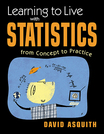BOOKS
Latin American Democracies in Danger: Threats ... and Practical DefensesHeraldo Muñoz What, asks Heraldo Muñoz, is behind the current phenomenon of democratic backsliding—globally and, particularly, in Latin America? What clues can we find to answer that question? Most crucially, can the current trajectory be changed? Muñoz draws on his experiences as a political dissident, a political scientist, and then a participant at the highest levels of Chilean and More > |  |
Latin American Exports to China: Local Experiences and ChallengesEnrique Dussel Peters, editor The complexity and depth of the Latin America-China trade relationship—especially in light of the contemporary confrontation between the US and China—is placed front and center in this book. The contributors assess the impacts on six Latin American nations of their exports to China, highlighting processes, products, and the challenges posed by the relevant global value chains (GVCs). More > |  |
Latino Political Power, 2nd editionSharon A. Navarro and Kim Geron This new, fully revised edition of Latino Political Power reflects a diverse community evolving in its ethnic, racial, and sexual identities, as well as in its voting behavior and party affiliations. Sharon Navarro and Kim Geron map the transformation of Latino political power from the 1960s to the present. Comprehensive and accessible, their analysis of the complex processes of political More > |  |
Launching into Cyberspace: Internet Development and Politics in Five World RegionsMarcus Franda Launching into Cyberspace explores the Internet as an increasingly important variable in the study of comparative politics and international relations. Focusing on Africa, the Middle East, Central and Eastern Europe, Eurasia, China, and India, Franda examines the extent to which Internet development has (or has not) taken place and the relationship between that development and the conduct of More > |  |
Lauretta Ngcobo: Writing as the Practice of FreedomBarbara Boswell, editor When Lauretta Ngcobo died in 2015, Africa lost a significant literary talent, freedom fighter, and feminist voice. Ngcobo was one of the pioneering writers who first published novels in English from the vantage point of black women. Along with Bessie Head and Miriam Tlali, she showed the world, through her fiction, what it was like to be a black woman in apartheid South Africa. Barbara Boswell More > |  |
Law and Election Politics: The Rules of the GameMatthew J. Streb, editor How much money can a candidate for political office legally collect, and from what sources? What can and can't be said in campaign ads? Who determines the process of redistricting, and what is the overall effect on U.S. democracy? Law and Election Politics analyzes the rules of the electoral game, helping readers to understand how politics influences and is influenced by electoral laws and More > |  |
Leadership for Development: What Globalization Demands of Leaders Fighting for ChangeDennis A. Rondinelli and John M. Heffron Leadership for Development examines fundamental issues: the tools leaders use to achieve development goals; how culture and interdependence among governments and organizations affects leadership styles; where leaders get their advice from – experts, non-experts, academic or non-academic elites—and if it matters; whether transformational or transactional leadership styles are more More > |  |
Learning for Living: Towards a New Vision for Post-School Learning in South AfricaIvor Baatjes, editor In the context of South Africa's deepening inequalities, widespread poverty, and increasing unemployment rates, the need for a new approach to adult education is becoming urgent. Learning for Living issues a call to action to meet that need. Drawing on the lived experiences of people throughout the country, the book challenges policymakers, researchers, educators, and civil society More > |  |
Learning to Live with Statistics: From Concept to PracticeDavid Asquith Is it possible to demystify statistics? Can math phobia be overcome? Perhaps surprisingly, the answer is yes. Learning to Live with Statistics, based on years of teaching experience, explains basic statistical concepts and procedures in a straightforward, digestible way. Using familiar examples that highlight the relevance of the subject to everyday life, David Asquith provides clear More > |  |
Legends, Sorcerers, and Enchanted Lizards: Door Locks of the Bamana of MaliPascal James Imperato, with an foreword by Robert J. Koenig The Bamana people are known for their rich artistic traditions, including the creation of masks, statues, door locks, headdresses, and ritual and utilitarian objects: Their door locks are among the most remarkable of all African art. Sculpted of wood in a rich variety of forms, they depict mythological and historical figures, social events, and representational figures—crocodiles, lizards, More > |







